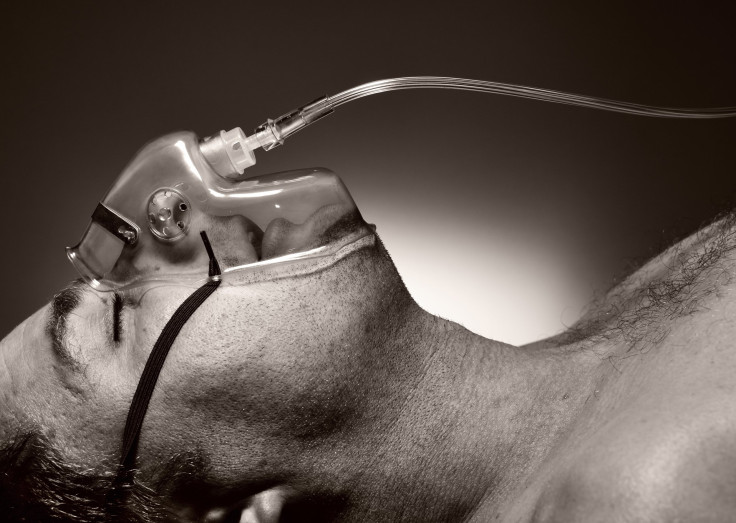4 Ways Science Can Predict Death, Rate Of Aging

It starts happening sometime around our late-20s. All those bumps and bruises we accrued during our teenage years, though healed on the outside, start to appear in the form of random pains in our joints, or our backs — we just can’t move around like we used to. Some women start to see wrinkles forming (gasp!) We all worry about aging, and some of us think too much about when we’ll die. Although it’s best not to worry about these things, if you’re really interested in getting an estimate, here are four ways scientists have been able to predict death and aging.
Your Sense Of Smell
The nose requires constant cellular regeneration to maintain its ability to smell, especially when it comes to those more subtle scents. But as we age, our cells begin to lose their ability to regenerate, due in part to “age-dependent changes in tissue-specific stem cells,” a 2005 study said. So it makes sense, then, that the nose’s ability to smell will falter as we get older.
A study from earlier this month found just that. After testing the ability of about 3,000 men and women aged 57 and up to identify five scents — peppermint, fish, orange, rose, and leather — they found that those who were worse at identifying each among a group of four were three times as likely to die within five years.
How Strong is your Grip?
It turns out that your level of educational attainment can be a predictor of death, if only by a small margin. Surveys on aging from around the world have already begun implementing strength tests as a way to determine a person’s rate of aging. After all, less strength can be associated with anything from disability to cognitive decline, and a person’s ability to recover from injury to death.
A May study, published in the journal PLOS One, rounded up data from over 50 other studies, and found that a person’s educational level could hint to their grip strength, and thus predict their rate of aging. They found that “a 65-year-old white woman who had not completed secondary education has the same handgrip strength as a 69-year-old white woman who had completed secondary education,” the study’s author Serguei Scherbov said in a press release. “This suggests that according to a handgrip strength characteristic, their ages are equivalent, and 65-year-old women age four years faster due to lower educational attainment.”
A Blood Test for Aging?
There’s no doubt that our blood is one of the best ways to measure our health. Blood tests tell us about disease (STDs, for example), our immune health, and obviously, blood pressure and cholesterol. But recently, scientists also learned that blood biomarkers, molecules within that indicate health conditions, can also determine whether or not a person will live longer.
A study from March this year gathered blood samples from 9,842 people; within five years, 508 of them died. When the researchers tested the blood, they found that four of them — plasma albumin, alpha-1-acid glycoprotein, very low-density lipoprotein particle size, and citrate — appeared in higher concentrations than the rest. Another experiment on 7,500 participants found similar results.
The researchers said that these biomarkers were indicative of diseases to come, since they were signs of general frailty in the body. But it was those whose levels of the biomarkers were in the top 20 percent of all people with the biomarkers that were 19 times more likely to die within five years, when compared to those in the bottom 20 percent.
Think Fast! Your Life Depends On It
It should come as no surprise that a person who is able to react quickly to any sort of stimulus probably has better cognitive function. In a study published earlier this year, researchers at University College London created a simple test, which you can play here, that was able to determine a person’s risk of early death, depending on how quickly they reacted.
The goal of the game was to see how quickly people could push a button when prompted by an image moving swiftly across the screen. If you blinked, you’d probably miss it. Over the course of 15 years, the researchers found that participants 378 of the 5,000 participants who had played the game at the start had died. When they compared these rates to the scores on the game, they determined that those with slower-than-average reaction times were 25 percent more likely to die.
“One theory is that slow reaction time might reflect deterioration of other bodily systems, such as the brain and nervous system,” Dr. Gareth Hagger-Johnson, author of the study, told Medical Daily at the time. “Perhaps, people who are slower to react are also more unhealthy.”



























